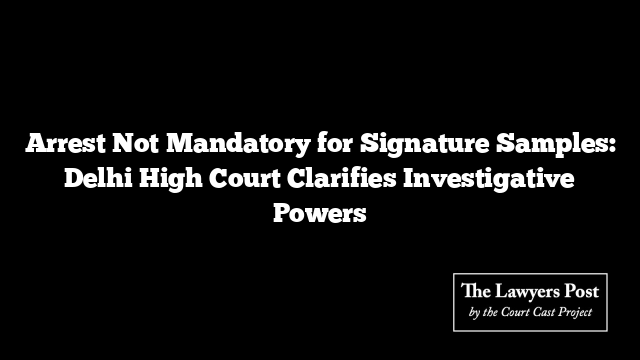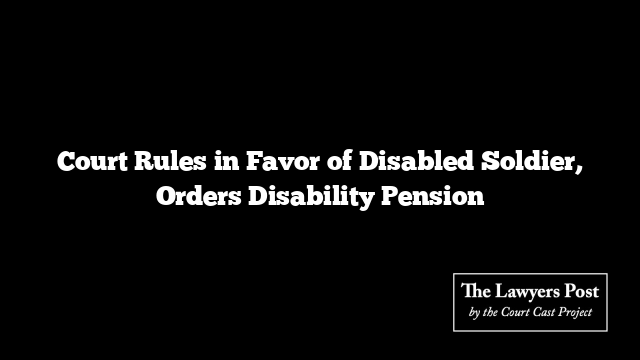The Delhi High Court has upheld the constitutional validity of the proviso to Section 311A of the Code of Criminal Procedure (CrPC), ruling that magistrates can order individuals to provide specimen signatures without requiring their arrest. The Court emphasized that the provision is directory rather than mandatory, allowing flexibility in its application during investigations.
A Bench of Justices Prathiba M Singh and Amit Sharma clarified that interpreting the term “shall” as mandatory would necessitate arrest before obtaining such samples, a practice contrary to the principle that arrests are discretionary, even in non-bailable offenses.
The Court stated, “When a person voluntarily appears before the Magistrate for providing specimen signatures, there is no legal necessity to arrest them.” This reasoning aligns with the updated provision in Section 349 of the Bharatiya Nagarika Suraksha Sanhita (BNSS), which explicitly permits obtaining such samples without prior arrest, provided the Magistrate records reasons for the order.
The matter originated from a magistrate’s query about whether arrest or custody is a prerequisite under Section 311A when an individual is summoned to provide handwriting or signature samples. Questions regarding potential overreach into fundamental rights also surfaced during the proceedings.
The decision underscores the discretionary nature of arrest in these contexts, aiming to balance investigative needs with individual rights.





